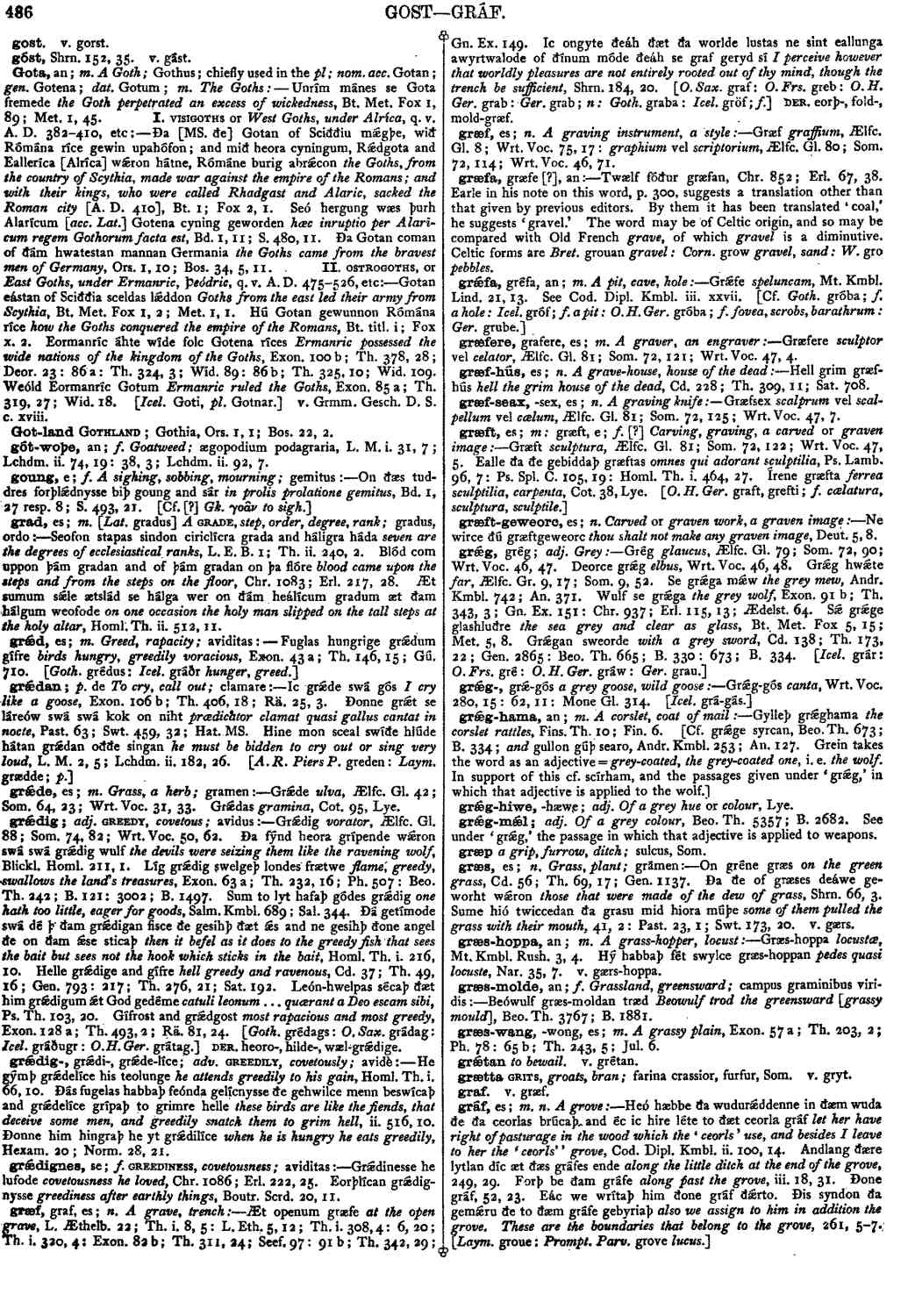Gota
- noun [ masculine ]
-
Unrím mánes se Gota fremede
the Goth perpetrated an excess of wickedness,
- Bt. Met. Fox 1, 89; Met. 1, 45.
-
Ða [MS. ðe] Gotan of Sciððiu mǽgþe, wið Rómána ríce gewin upahófon; and mið heora cyningum, Rǽdgota and Ealleríca [Alríca] wǽron hátne, Rómáne burig abrǽcon
the Goths, from the country of Scythia, made war against the empire of the Romans; and with their kings, who were called Rhadgast and Alaric, sacked the Roman city
[A. D. 410], Bt. 1; Fox 2, 1. -
Seó hergung wæs þurh Alarícum [acc. Lat.] Gotena cyning geworden
hæc inruptio per Alarīcum regem Gothorum facta est,
- Bd. 1, 11; S. 480, 11.
-
Ða Gotan coman of ðám hwatestan mannan Germania
the Goths came from the bravest men of Germany,
- Ors. 1, 10; Bos. 34, 5, 11.
- Þeódric, q. v. A. D. 475-526, etc
-
Gotan eástan of Sciððia sceldas lǽddon
Goths from the east led their army from Scythia,
- Bt. Met. Fox 1, 2; Met. 1, 1.
-
Hú Gotan gewunnon Rómána ríce
how the Goths conquered the empire of the Romans,
- Bt. titl. i; Fox x. 2.
-
Eormanríc áhte wíde folc Gotena ríces
Ermanric possessed the wide nations of the kingdom of the Goths,
- Exon. 100 b; Th. 378, 28; Deor. 23: 86 a: Th. 324, 3; Wid. 89:
86 b; Th. 325, 10; Wid. 109.
-
Weóld Eormanríc Gotum
Ermanric ruled the Goths,
- Exon. 85 a; Th. 319, 27; Wid. 18.
Bosworth, Joseph. “Gota.” In An Anglo-Saxon Dictionary Online, edited by Thomas Northcote Toller, Christ Sean, and Ondřej Tichy. Prague: Faculty of Arts, Charles University, 2014. https://bosworthtoller.com/17412.
Checked: 0